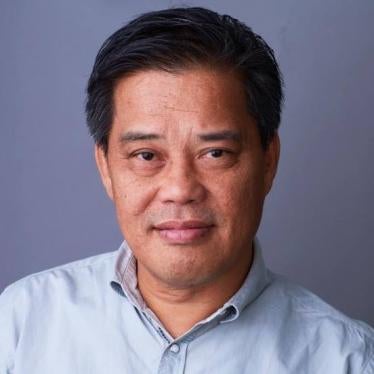On the evening of May 24, neighbors said they heard Rosalie Calago scream: “Please help us! The military are here!” But before anybody could respond, fire engulfed her house and gunshots rang out. In the morning, the neighbors found her body sprawled in the kitchen, a gunshot wound to the stomach.
Not far from her body was that of her husband, Endric, 47. According to a news report, Endric had been shot in the face and elsewhere. Empty shells for M-16 assault rifles, standard issue for the Philippine army, and M-203 grenade shells were found at the scene. The armed forces denied involvement in the killings.
In the context of the government’s long-running armed conflict with the communist New People’s Army (NPA), extrajudicial killings linked to the security forces are not unusual. Although such killings have dropped since President Benigno Aquino III took office in 2010, they have continued on a fairly regular basis, raising concerns about the government’s commitment to end both the killing and the culture of impunity that feeds it.
Endric Calago was an official of the peasant group Kilusang Magbubukid ng Pilipinas (KMP), and had just been elected as vice chairman of the group’s chapter in Negros Oriental province. The KMP has long been in the military’s crosshairs because its leftist rural constituency is deemed close to the communist movement. Although the KMP is an open and legal organization, that has not stopped the military from accusing it of being a front for the NPA. Negros Oriental has for decades been among the hotbeds of the insurgency.
The killings of leftist activists by alleged security forces reached new highs during the administration of President Gloria Macapagal-Arroyo from 2001-2010. It prompted the United Nations special expert on extrajudicial killings to step in and investigate, and he criticized the government for the failure to take measures to stop these abuses. Human Rights Watch documented several of these cases in the 2007 report, “No Justice Just Adds to the Pain.”
The national and international outcry led to a drop in killings but it did not result in the prosecution of those responsible. Task Force Usig, a unit of the Philippine National Police charged with investigating extrajudicial killings, has recorded 130 “activist killings” since 2001, but only one case has resulted in a conviction. Aquino will leave office in 2016. The failure to stamp out this scourge of extrajudicial killings is not the legacy he wants, but if he doesn’t make it a priority, it will be etched on his political epitaph.









